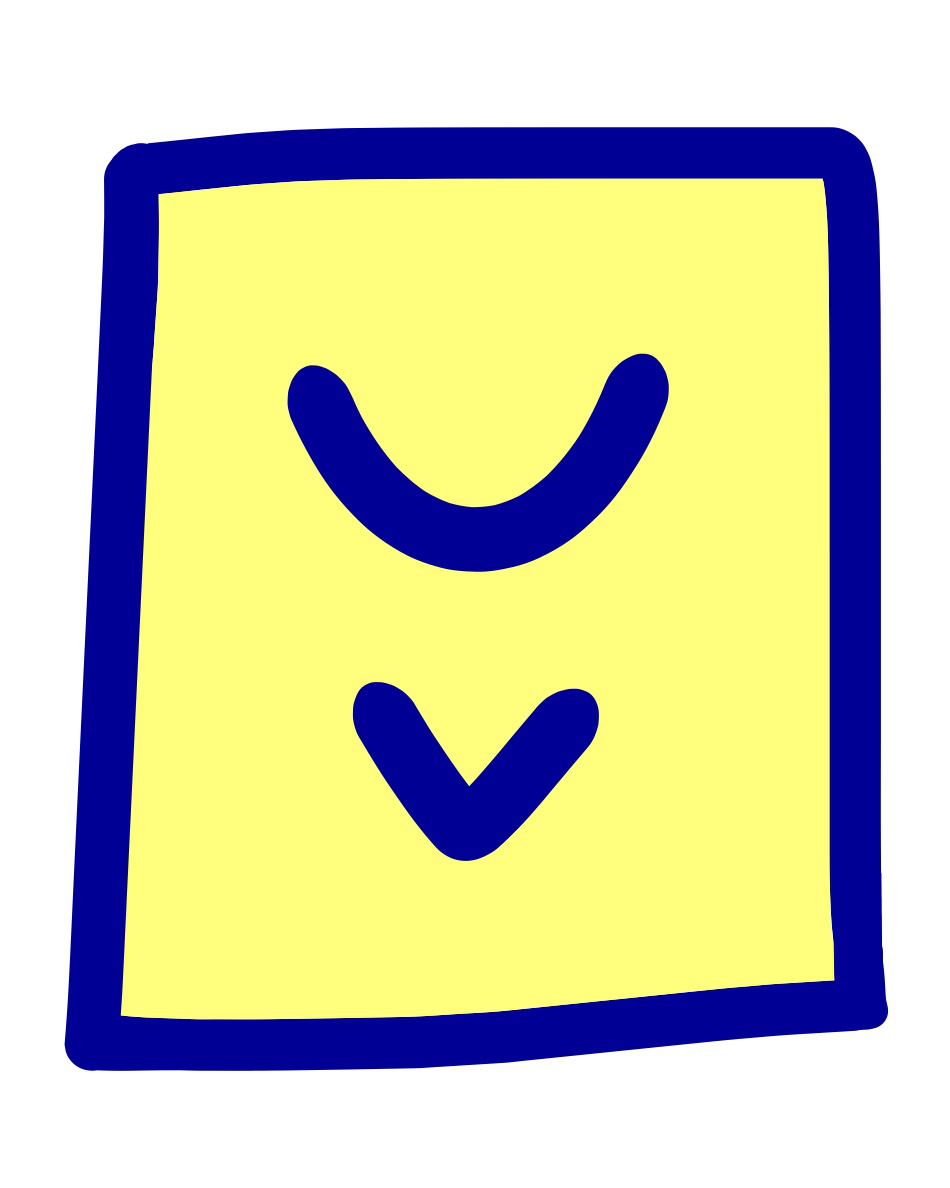

| Consonants | Labial | Coronal | Dorsal | Vowels | Front | Back | |
|---|---|---|---|---|---|---|---|
| Nasal | m | n | Close | i | u | ||
| Plosive | p | t | k | Mid | e | o | |
| Fricative | s | Open | a | ||||
| Approximant | w | l | j |
| |||
[emphasis]
color
many, very
top, high, holy
reptile, amphibian
group
number
body
no, nothing
listen, ear
strange, weird
circle
hunt, search
[context]
way, path
new, again
all, everything
sleep
bump, nose
you
low
blue, green
this, that
face, wall
different
head, rule
name, word
picture, write
or
clothing, cover
leg, foot
know
keep, stay
cold
[wish/command]
animal
[direct object]
[predicate]
love
big, important
[and]
small
he/she/it/they
sun, light
shop, trade
line
start, open
surface, table
thing
flat, page, book
broken
sweet, cute
bad
red
do, make, work
from, because
tool
in/at; true
stick, rod
but; only
inside
hand, arm
bread, grain
go, move; to
gross, trash
see, eye; try to
give
water, liquid
person
hole
[regrouper]
time
yellow
land
heart, feel
talk, language
have
parent
dark, black
house, room
fish
money
end, finish
two
sound
female
bug, insect
sex
come
I, me, we, us
side, vicinity
mouth
plant
male
box, container
fight, battle
can; possible
eat, food
good, simple
white
using, with (tool)
dead, kill
(toki pona book)
one
fruit
back
same; like
bird
hard, rock
[animal noise]
hot, fire
strong, energy
paste, powder
moon, star
layer, skin
away
air, spirit, essence
entertaining
[what]
want, need
* words may have more possible meanings or parts of speech than listed
toki pona does not mark tense, gender, or number.
li introduces the predicate(s) (except after a subject that is just mi or sina):
ona li pona = It's good.
mi tawa. = I’m going.
soweli li moku li lape. = Animals eat and sleep.
e marks direct objects:
mi moku e telo. = I’m drinking water.
ona li lukin e mi e sina. = They’re looking at me and you.
en introduces new subjects:
mi en sina li toki. = You and I are talking.
soweli en kala en waso li pona. = Animals, fish, and birds are good.
taso is used at the beginning of a sentence to mean “But, ...”:
mi wile e moku. taso sina jo e ona. = I want the food, but you have it.
mi lon tomo. = I am in the room/I’m at the house.
mi toki kepeken ilo. = I talk using the tool.
ona li pana e moku tawa soweli. = She gave food to the animal.
sina sama mama sina. = You’re like your parents.
mi pilin pona tan ni. = I feel good because of that.
ni: can be used instead to connect clauses:
mi wile e ni: sina pana e sona tawa mi. = I want you to teach me. (I want this: you teach me.)
ona li kute tan ni: sina toki. = They listen, because you’re talking. (They listen because of this: you’re talking.)
soweli lili = small animal
ona li sitelen pona. = She writes well.
ma tomo = land of houses (city)
tomo jan = a person’s house
nimi mi = my name
[tomo telo] nasa = crazy [water room] (crazy bathroom)
tomo pi [telo nasa] = [crazy water] (alcohol) room (bar)
mi ken toki. = I can speak.
mi wile lape. = I want/need to sleep.
ona li awen tawa. = It keeps going.
mi kama sona toki pona. = I’m learning to speak well/simply. (I’m learning to speak toki pona.)
ona li lukin kama jo e ona. = He’s trying to get it.
ona li suli ala. = It’s not big/important.
mi sona ala. = I don’t know/understand.
ni li seme? = What is this?
toki! sina pilin seme? = Hello! How do you feel? (How are you?)
jan seme li lon? = Who is here?
sina tan ma seme? = Where are you from?
sina kama sona kepeken nasin seme? = How did you learn? (lit. ...with what method?)
sina sona ala sona e toki pona? = Do you know toki pona?
sina sona e toki Inli anu seme? = Do you know English?
Repeat the verb for yes or say ala for no:
sona = yes (I know it); ala = no
Vocative:
jan Sonja o, sina pona. = Sonja, you’re good.
Commands:
o kama sona e toki pona. = Learn toki pona.
mi o tawa. = Let’s go.
jan ale o kute! = Everyone, listen!
Wishes:
sijelo sina o kama pona. = May your body get better.
ale o pona. = May everything be good.
Time or location:
tenpo suno ni la mi pali. = Today, I am working.
tomo mi la mi lape. = In my room, I sleep.
If clauses:
sina pali la sina kama jo e mani. = If you work, you get money.
telo li kama tan sewi la mi tawa ala. = If water comes from the sky (it’s raining), I’m not going.